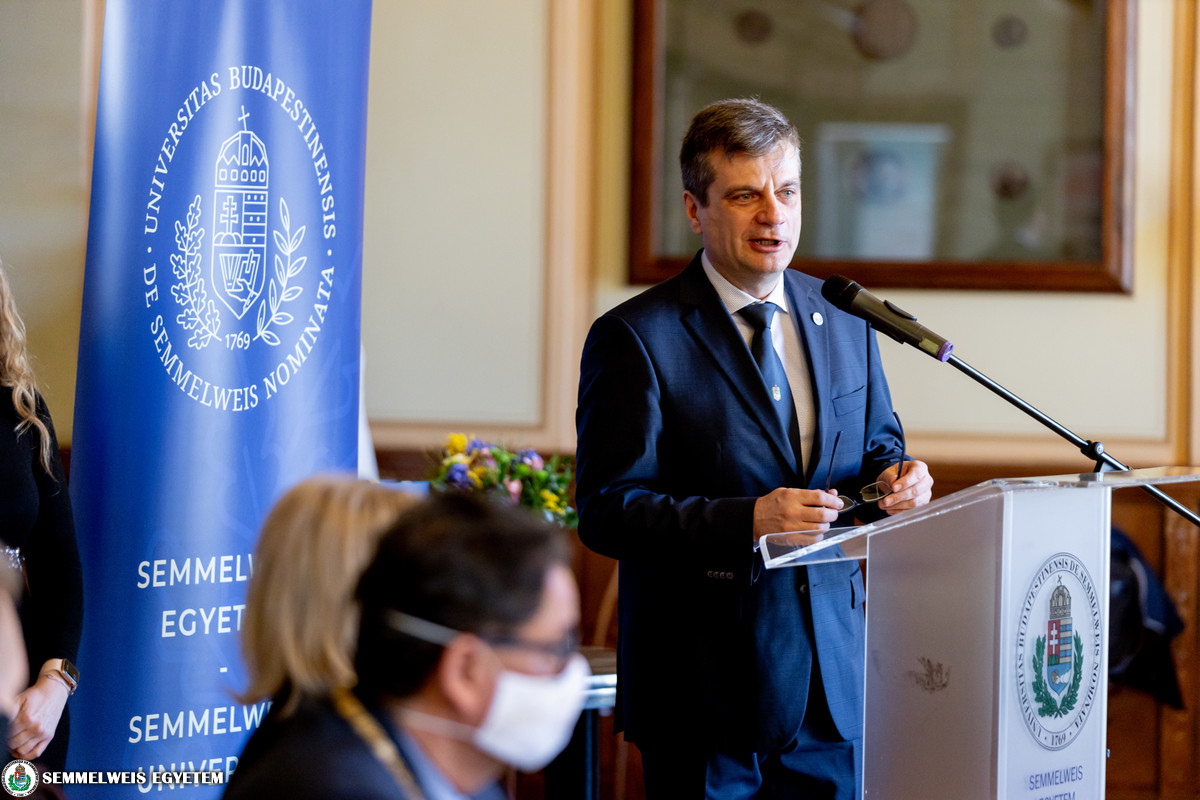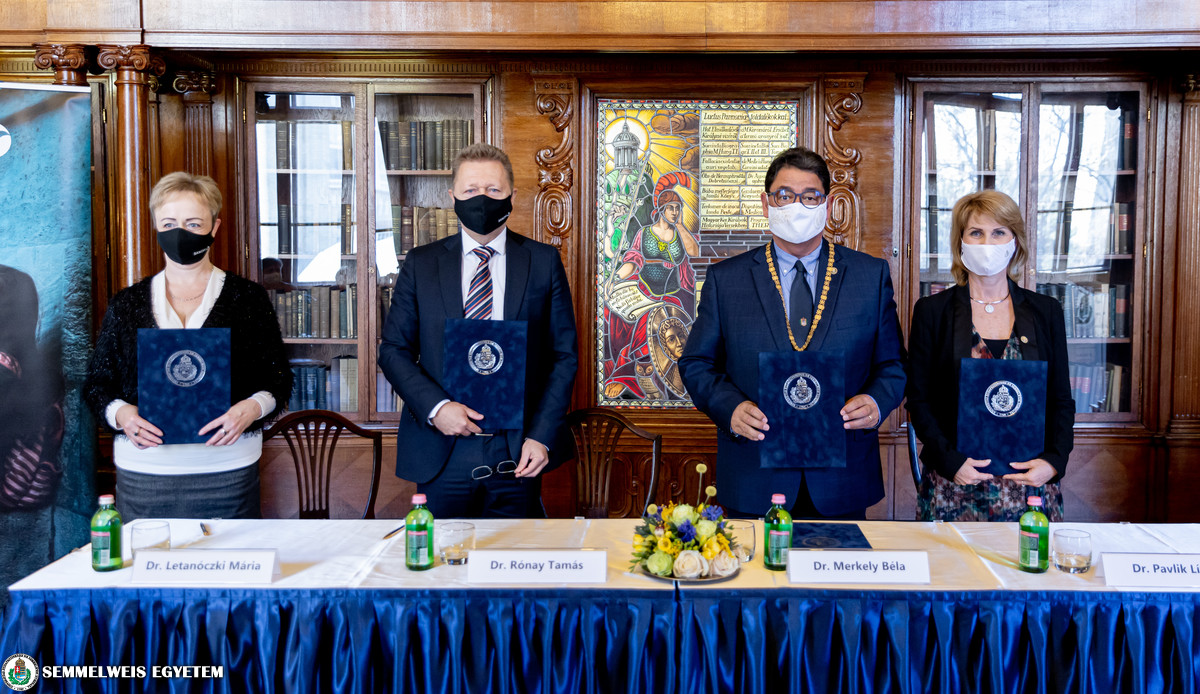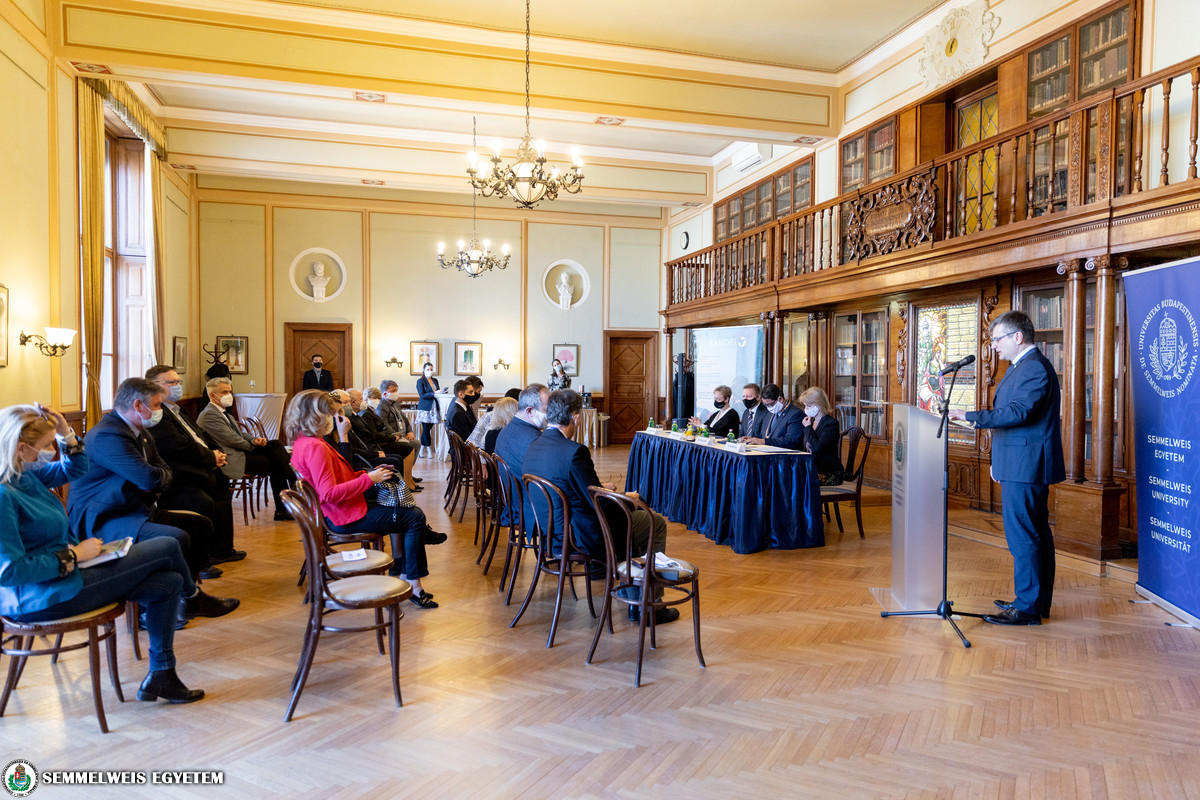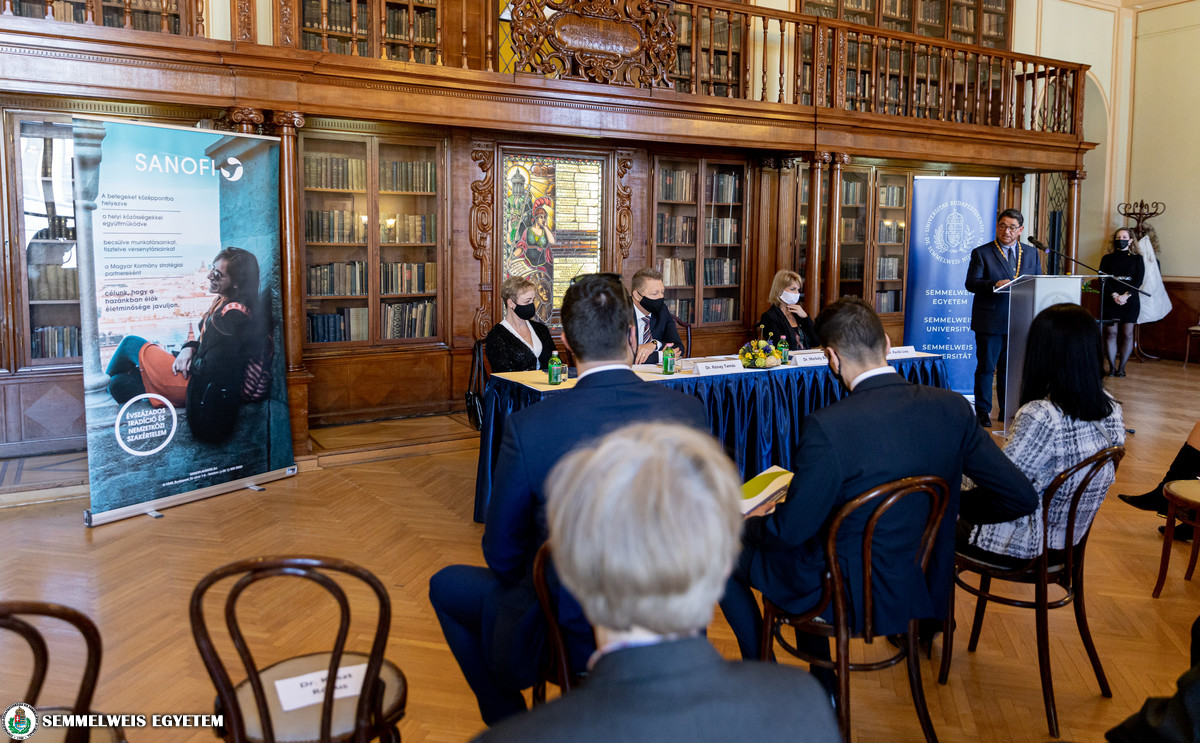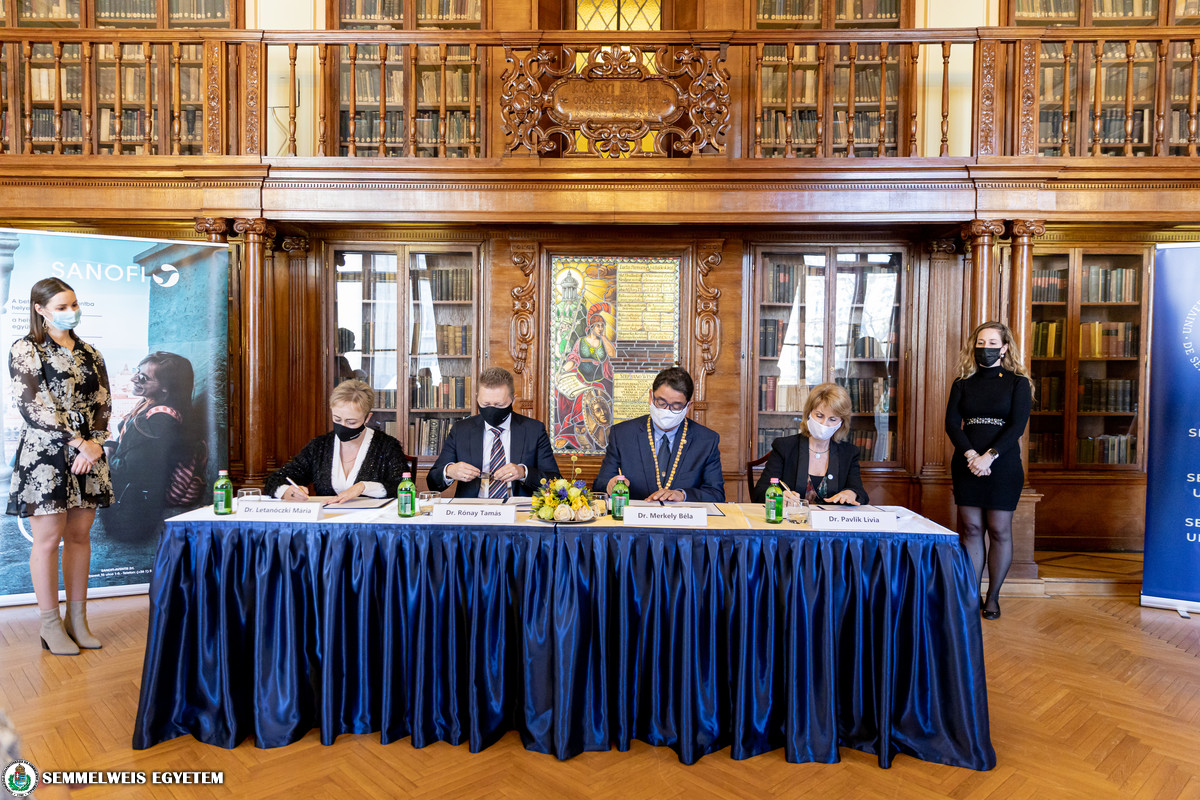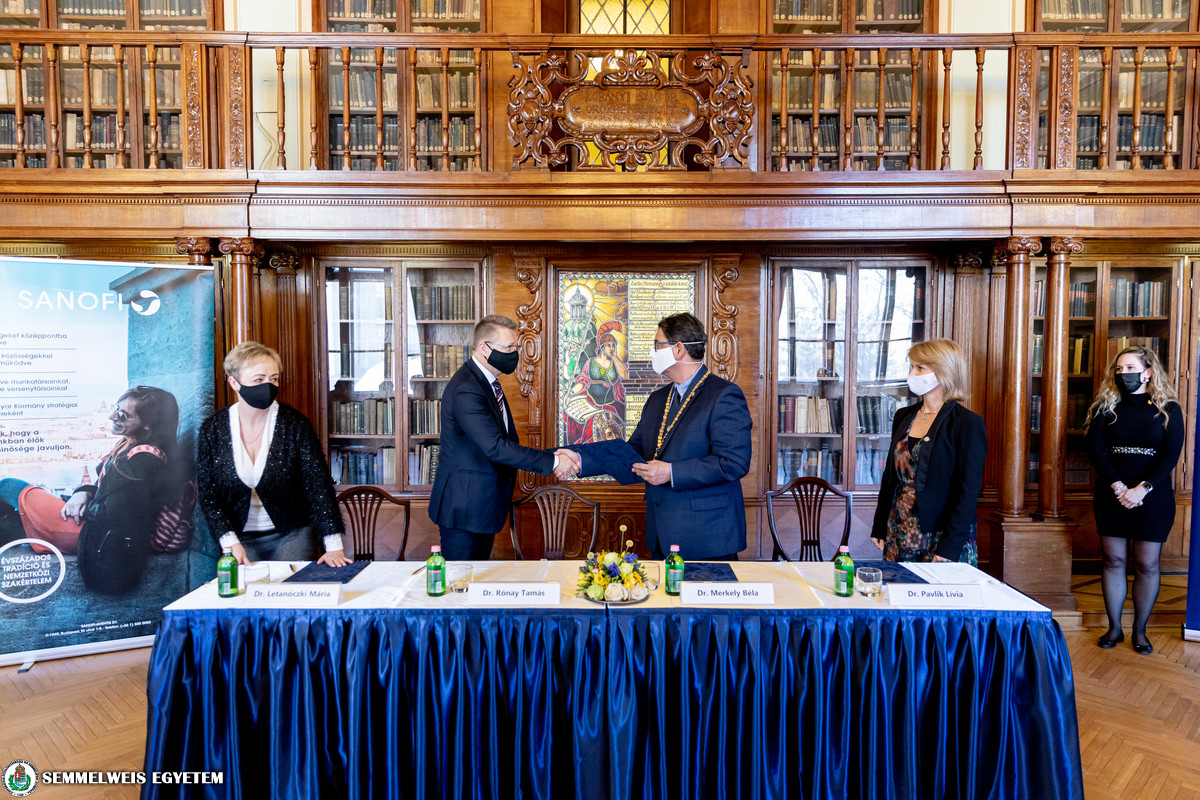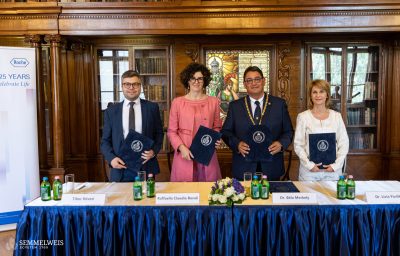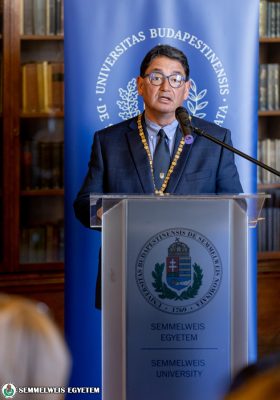 “The strategic objectives of Semmelweis University include increasing clinical research activities and further developing strategic partnerships with the pharmaceutical industry. Participation in clinical trials and the intensification of cooperation in this area will not only enable our patients to gain access to innovative therapeutic options as soon as possible, but will also enable our researchers and doctors to be among the first to gain experience with new treatment methods,” said Rector Dr. Béla Merkely on the occasion of the signing of the cooperation agreement. In 2021, around 150 new trials were launched at the university, and in the last month around 700 patients participated in trials at the university’s departments. The leading therapeutic areas are oncology, neurology, cardiology, pediatrics and dermatology, he said.
“The strategic objectives of Semmelweis University include increasing clinical research activities and further developing strategic partnerships with the pharmaceutical industry. Participation in clinical trials and the intensification of cooperation in this area will not only enable our patients to gain access to innovative therapeutic options as soon as possible, but will also enable our researchers and doctors to be among the first to gain experience with new treatment methods,” said Rector Dr. Béla Merkely on the occasion of the signing of the cooperation agreement. In 2021, around 150 new trials were launched at the university, and in the last month around 700 patients participated in trials at the university’s departments. The leading therapeutic areas are oncology, neurology, cardiology, pediatrics and dermatology, he said.
The rector noted that Sanofi is one of the world’s largest pharmaceutical groups, with a centuries-old tradition in Hungary. He pointed out that under the partnership agreement on clinical trials, Semmelweis University will become one of Sanofi’s key partner institutions and a member of its global network of partner trial sites.
Working together, we can create innovations that help people live healthier lives and improve their quality of life,”
– he said. Dr. Béla Merkely pointed out that this also plays a significant role in the research performance of the institution, which has a major impact on its position in international rankings. “Recognizing this, we have strengthened our system of support for research, development and innovation, including the establishment of the Clinical Research Coordination Center. We have developed a new set of procedures to reduce and simplify the administration of clinical research start-ups,” he underlined. “The agreement is another step towards the strategic goal of making the university one of the top 100 higher education institutions in the world and one of the top 5 medical universities in Europe,” said the rector.
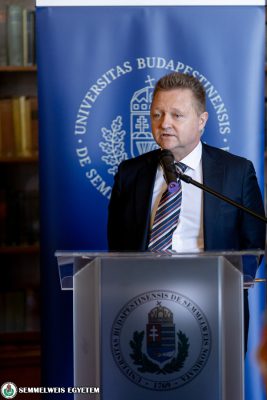 Dr. Tamás Rónay, CEO of Sanofi Hungary, emphasized in his speech that today cooperation, joint thinking and knowledge sharing have become particularly important, which is much needed in all fields of science and society as a whole. However, the pharmaceutical industry and medicine have gone hand in hand since the very beginning. “The pharmaceutical industry is working to bring newer, more innovative, more effective and more personalized medicines to patients. Clinical trials are a key part of this process. But this clinical trial can only be successful if the patient, the doctor and the drug developer work closely together,” he said. But clinical trials are not just about therapeutic benefits: trials conducted in Hungary strengthen Hungary’s role in the pharmaceutical industry, improve doctors and therapeutic protocols, and give patients access to innovative therapies not available elsewhere.
Dr. Tamás Rónay, CEO of Sanofi Hungary, emphasized in his speech that today cooperation, joint thinking and knowledge sharing have become particularly important, which is much needed in all fields of science and society as a whole. However, the pharmaceutical industry and medicine have gone hand in hand since the very beginning. “The pharmaceutical industry is working to bring newer, more innovative, more effective and more personalized medicines to patients. Clinical trials are a key part of this process. But this clinical trial can only be successful if the patient, the doctor and the drug developer work closely together,” he said. But clinical trials are not just about therapeutic benefits: trials conducted in Hungary strengthen Hungary’s role in the pharmaceutical industry, improve doctors and therapeutic protocols, and give patients access to innovative therapies not available elsewhere.
Rónay pointed out that Sanofi is currently conducting more than 30 clinical trials in Hungary at nearly 100 sites, with the participation of 1,200 patients and healthy volunteers, in all key therapeutic areas of the group, and Semmelweis University is involved in all of them.
“Through our collaborations, our group is playing an increasingly important role not only in the pharmaceutical industry itself, but also in the development of health care research and the innovation ecosystem, which is of key importance to the national economy,” he said. He added that the company and the university share common goals, as both are working to safeguard the health of the Hungarian people.
The cooperation agreement was signed by Rector Dr. Béla Merkely and Chancellor Dr. Lívia Pavlik on behalf of the university, and by CEO Dr. Tamás Rónay and Director of Clinical Research Dr. Mária Letanóczki on behalf of Sanofi.
In his closing remarks, Vice-Rector for Science and Innovation Dr. Péter Ferdinandy thanked the Semmelweis Citizens who helped to conclude the agreement, with special mention to Dr. János Filakovszky, director of the Clinical Research Coordination Center. He also expressed the hope that the collaboration will generate preclinical research and early phase development in addition to clinical research, which may even lead to joint intellectual properties.
Ádám Szabó
Translation: Tamás Deme
Photo: Attila Kovács – Semmelweis University

